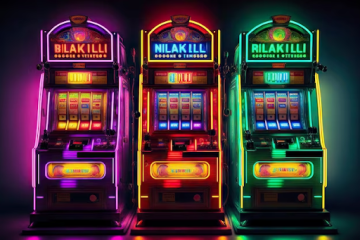Gamification Is Driving Profitable Fan Engagement in Sports

Sports organizations are harnessing the power of gamification to enhance user experiences. As a result, it has helped them in retention and conversions in their fan engagement campaigns. Even though the benefits of gamification cut across different industries, those running on a direct-to-consumer business model benefit more. In this blog, you will know Gamification Is Driving Profitable Fan Engagement in Sports.
For example, sports organizations can benefit immensely from gamified experiences. For instance, it helps them drive revenue with subscriptions, sale of merchandise, ticketing, among other conversions. The most important value is usually derived from data that powers direct marketing and enables personalization which considers customer interests and preferences and generates actionable insights. The best sports betting sites are great examples of platforms that have utilized this feature. Click https://www.oddsshark.com/mobile for more details on the best mobile sports betting sites.
Note that gamification does not mean developing an in-app game for users to play. Instead, it means implementing techniques that take users through standard experiences in a manner that feels like a game. Additionally, it means making a task more exciting, having a sense of purpose, and making the experience flawless.
So, how does gamification drive profitable fan engagement? Read on to find out more!
Table of Contents
Fantasy Leagues
Fantasy games usually bring fans together, allowing them to invest their time, passion, and money in a fan-to-fan competitive tournament. The leagues drive interest in a sport that transcends a single team. As a result, they lead to passionate and loyal usage, including massive downloads and ongoing engagement.
Fantasy Premier League is a perfect example. It went live in 2002 and brought together more than 7 billion players globally each season. Fans assume the role of a manager and perform managerial responsibilities, including buying and selling players. Their teams collect points for assists, goals, saves, and other actions on the pitch.
The Fantasy League generates talkable topics, sharable achievements, and League invite, which drives viral adoption. These leagues provide a powerful gamified experience that drives high engagement among new and existing fans. Generally, sports games are used as a vehicle for promoting the sport into growth markets.
Official Sports Teams’ Apps
All top sports teams have developed a mobile app. The teams then encourage their fans to sign-up for the app to access exclusive content and games. This approach offers the teams a perfect mechanism for capturing first-party data.
Moreover, they put gamified elements across the app, which enable them to capture data points and discover behavioral patterns. For example, the teams can use exclusive match imagery and video replay content with interactive layers allowing them to get behavioral insight from users. For example, they can use polls to determine affinity to a particular player.
They can then use this data to personalize content the user accesses from then on. The teams also use moderated community chats and other forms of involvement to boost user retention and get voluntary first-party data from users.
Esports
Esports is perhaps one of the most well-known examples of gamification in the sports industry. Esports or electronic sports is a competitive gamified experience that allows fans to compete against each other. The competition usually happens in front of a spectator audience, just like in traditional sports.
The popularity of eSports has given rise to eSports leagues and teams who face off in similar games popular with at-home gamers. Examples of popular eSports games include League of Legends, Fortnite, Counter-Strike, Overwatch, Call-of-Duty, and Madden NFL.
Esports creates a competition having points and prizes to be won. It also includes leaderboards and reward cycles. As a result, it keeps the users engaged and hungry for more. Esports offers a powerful gamified experience tool that reaches a massive global audience.
For example, many top teams have their own branded and well-financed eSports team. On the other hand, some official leagues also have their official eSports leagues. This mechanism was precious during the pandemic as it helped build fan engagement before, during, and after sports events.
Sports Betting
Many sports brands have taken advantage of the sports betting industry to boost their awareness and drive sponsorship. On the other hand, betting companies use gamified bets to attract new users. For example, they use prediction bets or what will happen at “X” time bets which attract sports betting fans who feel they have more betting skills. Such bettors end up spending more time following the team in question to learn more about the brand.
Final Thoughts
It is evident that gamification, when properly applied, can drive profitable fan engagement in sports. At the end of the day, it all depends on the particular audience and business outcome a business wants to drive.
Nevertheless, gamification remains a critical tool sports brands can use to increase fan engagement before, during, and after matchday events. Finally, the forms of gamification experienced are just the tip of the iceberg. Fans should brace themselves for more!







